Are you searching for the best alternative to QuickAlerts? Look no further! In this guide, we introduce Moralis’ Streams API—your ultimate solution for setting up Web3 data pipelines. In doing so, we’ll explore the benefits of the Streams API and compare them to QuickAlerts, highlighting why our service stands out as the industry’s #1 real-time Web3 data solution. Eager to dive in? Check out the comparison chart below:
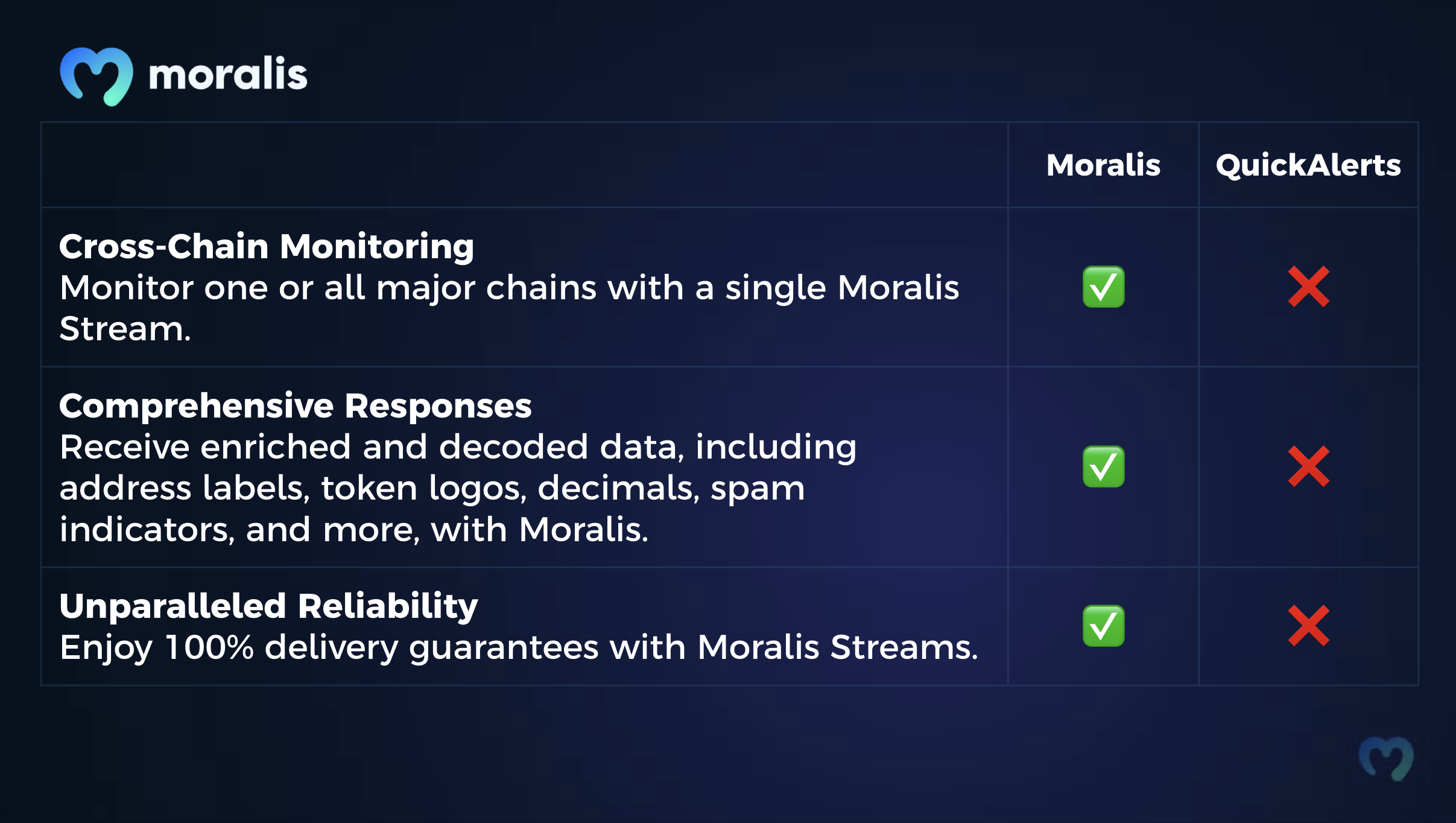
For a detailed analysis of the chart, continue reading as we break down the specifics for you!
Want to start using Moralis’ Streams API right away? Sign up with Moralis today and gain instant access to our powerful nodes and comprehensive API suite!
Overview
QuickNode’s QuickAlerts is a real-time Web3 data solution for setting up alerts. However, while it’s a relatively solid solution, it has some significant limitations to consider. Firstly, QuickAlerts restricts you to just one blockchain when setting up alerts. Additionally, it lacks a native recovery mechanism, meaning that if your decentralized application (dapp) experiences downtime, you must manually recover any lost events. Fortunately, there are several prominent alternatives to QuickAlerts, with Moralis’ Streams API topping the list.

Moralis’ Streams API allows you to effortlessly set up Web3 data pipelines with just a few clicks. But how does the Streams API work, and what makes it the best alternative to QuickAlerts? If you’re looking for answers to these questions, join us in this guide as we explain everything you need to know. Let’s get started!
What is QuickAlerts?
QuickAlerts is QuickNode’s alert service designed for monitoring on-chain data changes. This tool allows developers to create custom expressions to target specific blockchain data and events. When changes are detected, notifications with payloads are promptly sent to a designated webhook destination in real-time. As such, with QuickAlerts, it’s possible to monitor DeFi activities, smart contract interactions, NFT events, and much more.

What can you track with QuickAlerts?
- NFTs: Set up notifications for NFT events, including transfers, mints, etc.
- Tokens: Stay informed about changes to tokens, liquidity pools, and more.
- Wallets: Monitor transactions to and from specific wallet addresses.
- Smart Contracts: Set up alerts for smart contract activities, including transfers, deployments, and other updates.
Now that you have an overview of QuickAlerts, let’s explore some of the service’s limitations.
The Limitations of QuickAlerts
While QuickAlerts offers a solid service for streaming on-chain data in real-time, it has significant limitations that make it less than ideal. Here are the three main drawbacks of QuickAlerts:
- Single Chain Monitoring: One of QuickAlerts’ primary limitations is its lack of cross-chain support. Each alert can monitor only one blockchain, requiring you to set up separate alerts for each chain you wish to track. This can quickly become time-consuming and resource-intensive.
- No Recovery Mechanisms: QuickAlerts lacks mechanisms for seamlessly recovering undelivered events. As such, if your application experiences downtime, retrieving the missed data becomes both challenging and time-consuming.
- Limited Data Payloads: QuickAlerts provides data payloads that are quite limited and contain only basic information. For example, when monitoring tokens, the alerts do not include logos, decimals, or other valuable data.
Given these major limitations, let us introduce you to Moralis’ Streams API—the ultimate tool for setting up Web3 data pipelines to stream real-time data!
The #1 QuickAlerts Alternative – Introducing Moralis’ Streams API
The Moralis Streams API is a top-tier real-time Web3 data solution, offering unparalleled ease of use and functionality. With its intuitive interface, you can effortlessly establish Web3 data pipelines with just a few clicks. In return, you’ll instantly receive updates on wallet or contract events through Web3 webhooks as soon as they occur!
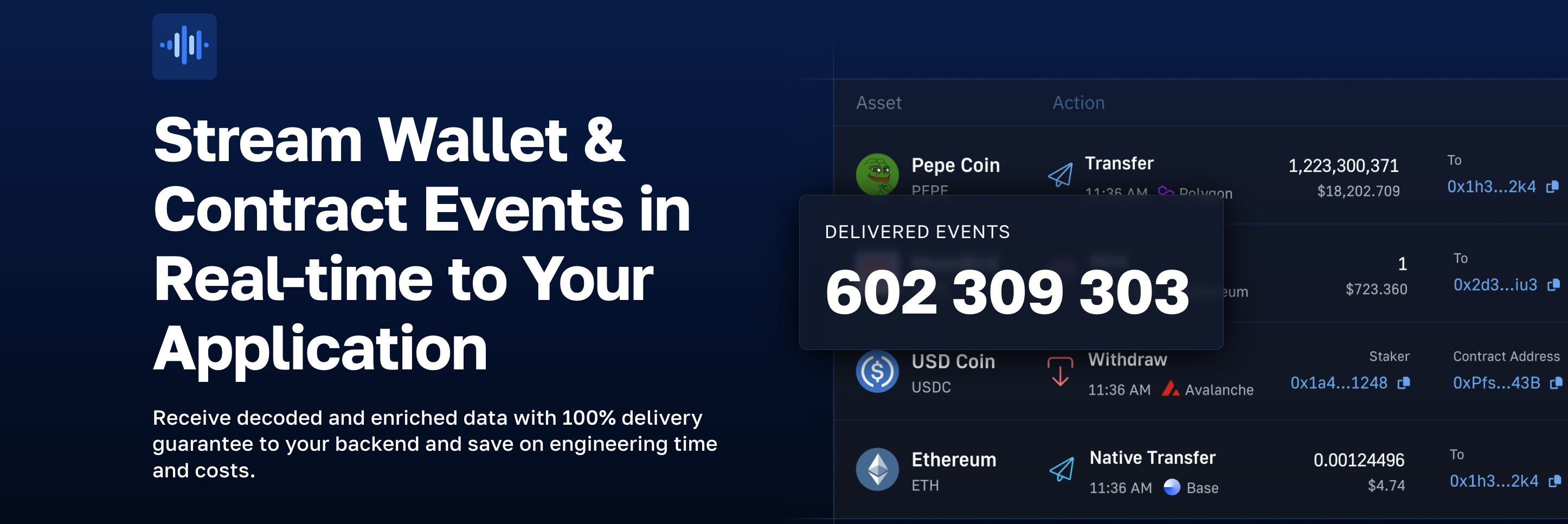
The Streams API delivers exceptional scalability and provides the industry’s most comprehensive real-time Web3 data service, encompassing all major networks, including Ethereum, Polygon, BNB Smart Chain (BSC), Optimism, and more.
Moreover, the Streams API enables you to configure streams for a wide array of events, tokens, wallets, and smart contracts, ensuring the flexibility to accommodate diverse use cases. This guarantees that you have all the real-time on-chain data you need readily available, no matter what platform you’re building.
With this introduction to Moralis Streams, let’s delve into the key benefits of our cutting-edge service!
Benefits of Moralis Streams
Why is Moralis the superior alternative to QuickAlerts? To answer this, let’s explore the main benefits of Moralis Streams:
- Comprehensive Chain Support: Moralis Streams supports over 30 blockchain networks, enabling you to effortlessly set up data pipelines for all major chains.
- Cross-Chain Monitoring: With Moralis, you can monitor multiple chains within a single stream, eliminating the need for separate data pipelines for each network you interact with.
- Guaranteed Delivery: In the event of downtime, Moralis ensures all payloads are securely backed up and fully replayable, guaranteeing 100% delivery.
- Fully Enriched & Decoded Data: Moralis Streams offers the most comprehensive data responses in the industry, including token logos, decimals, address labels, balance details, spam indicators, and more.
- Unparalleled Scalability: Moralis Streams are designed for scalability, allowing you to manage from one to over 100 million addresses in a single stream without performance degradation.
These features highlight the superiority of Moralis Streams. Now, let’s compare our service to QuickAlerts to underscore the primary differences!
Full Comparison: Moralis Streams Vs. QuickAlerts
Here’s a chart highlighting the main differences between Moralis Streams and QuickAlerts:

Let’s elaborate on the chart a bit further:
- Cross-Chain Monitoring: With Moralis, you can efficiently monitor multiple chains through a single stream, significantly simplifying your workflow. In contrast, when using QuickAlerts, you’re required to configure a new alert for each chain, which can be time-consuming and labor-intensive.
- Most Comprehensive Responses: The Moralis Streams API delivers the most comprehensive responses in the industry, providing more data within enriched payloads. For example, Moralis Streams offers significantly more detailed information when monitoring USDC events than QuickAlerts. Moralis’ responses include useful metadata such as token logos, symbols, decimals, and more, ensuring you have all the data you need at your fingertips:
Moralis Streams Response:
//...
{
transactionHash: '0x3858c26ad521b041e0550c90bfd39149131eca657de0a48361b5b7f3f0a6e23f',
logIndex: '395',
contract: '0xa0b86991c6218b36c1d19d4a2e9eb0ce3606eb48',
triggered_by: [Array],
from: '0x3fc91a3afd70395cd496c647d5a6cc9d4b2b7fad',
to: '0x88e6a0c2ddd26feeb64f039a2c41296fcb3f5640',
value: '2361961560',
tokenName: 'USD Coin',
tokenSymbol: 'USDC',
tokenDecimals: '6',
logo: 'https://logo.moralis.io/0x1_0xa0b86991c6218b36c1d19d4a2e9eb0ce3606eb48_e6ec22e3ef954a7f9eda04f294938f4d',
thumbnail: 'https://logo.moralis.io/0x1_0xa0b86991c6218b36c1d19d4a2e9eb0ce3606eb48_e6ec22e3ef954a7f9eda04f294938f4d',
possibleSpam: false,
verifiedCollection: true,
valueWithDecimals: '2361.96156'
},
//...
QuickAlerts Response:
[
{
blockHash: '0xfdcb335579a835e4d4cac866ca0777c640c12ad7fe70ae2c33137d45604e4772',
blockNumber: '0x1356357',
contractAddress: '',
cumulativeGasUsed: '0x49b432',
effectiveGasPrice: '0x1f6f80822',
from: '0xae2d4617c862309a3d75a0ffb358c7a5009c673f',
gasUsed: '0xb615',
logs: [ [Object] ],
logsBloom: '',
status: '0x1',
to: '0xa0b86991c6218b36c1d19d4a2e9eb0ce3606eb48',
transactionHash: '0xa42f679bc0753371022810462cc4df117a7596f1387568c5710c41b5fa7dfd35',
transactionIndex: '0x21',
type: '0x2'
},
/...
]
- Unparalleled Reliability: Moralis Streams stands out with its robust native recovery mechanism for undelivered events, ensuring 100% delivery reliability. Any undelivered events are logged under the “Logs” tab, where you can easily replay each event:
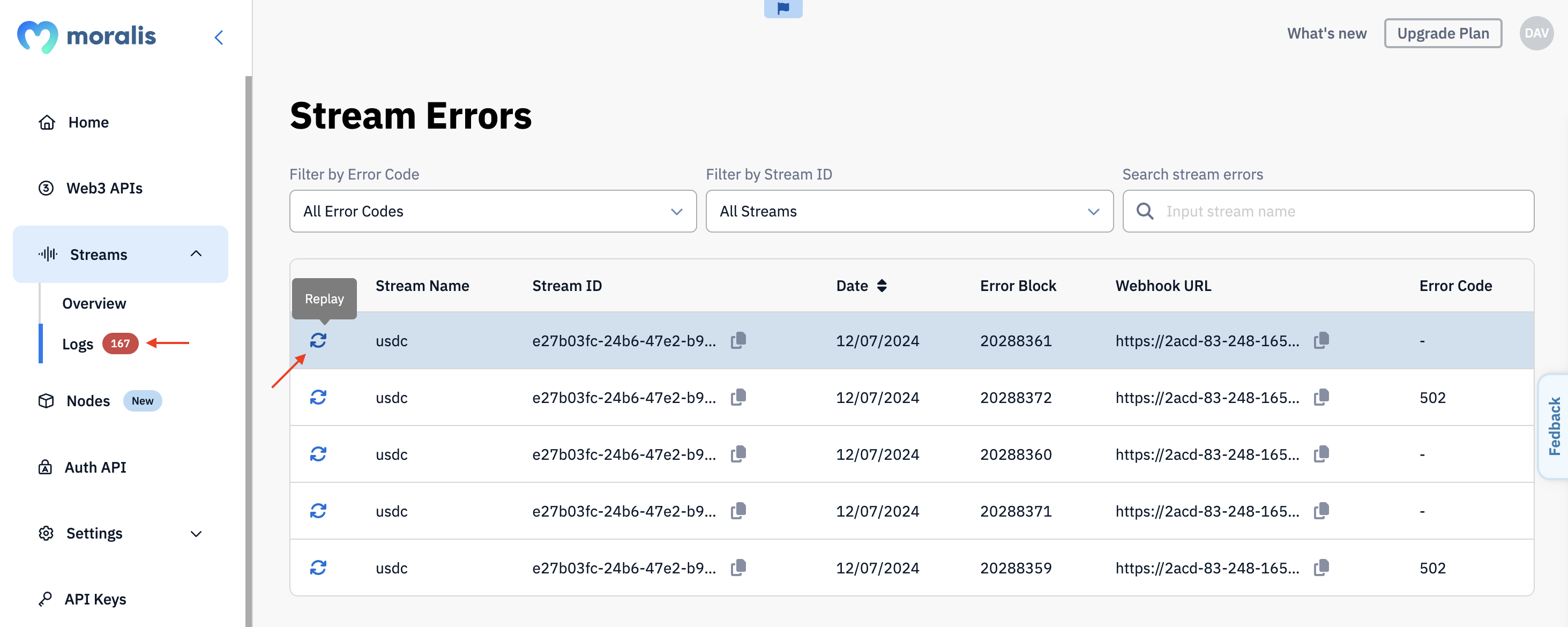
In summary, Moralis Streams offers a superior solution compared to QuickAlerts in terms of cross-chain monitoring, response comprehensiveness, and reliability!
Tutorial: How to Set Up Web3 Data Pipelines with Moralis
When leveraging Moralis’ Streams API, you can easily set up customized Web3 data pipelines at the click of a few buttons. To highlight the accessibility of this interface, we’ll now show you how to monitor USDC transactions in eight straightforward steps:
- Step 1: Create a Moralis account, log in, click the “Streams” tab, and hit “+ Create Stream”:
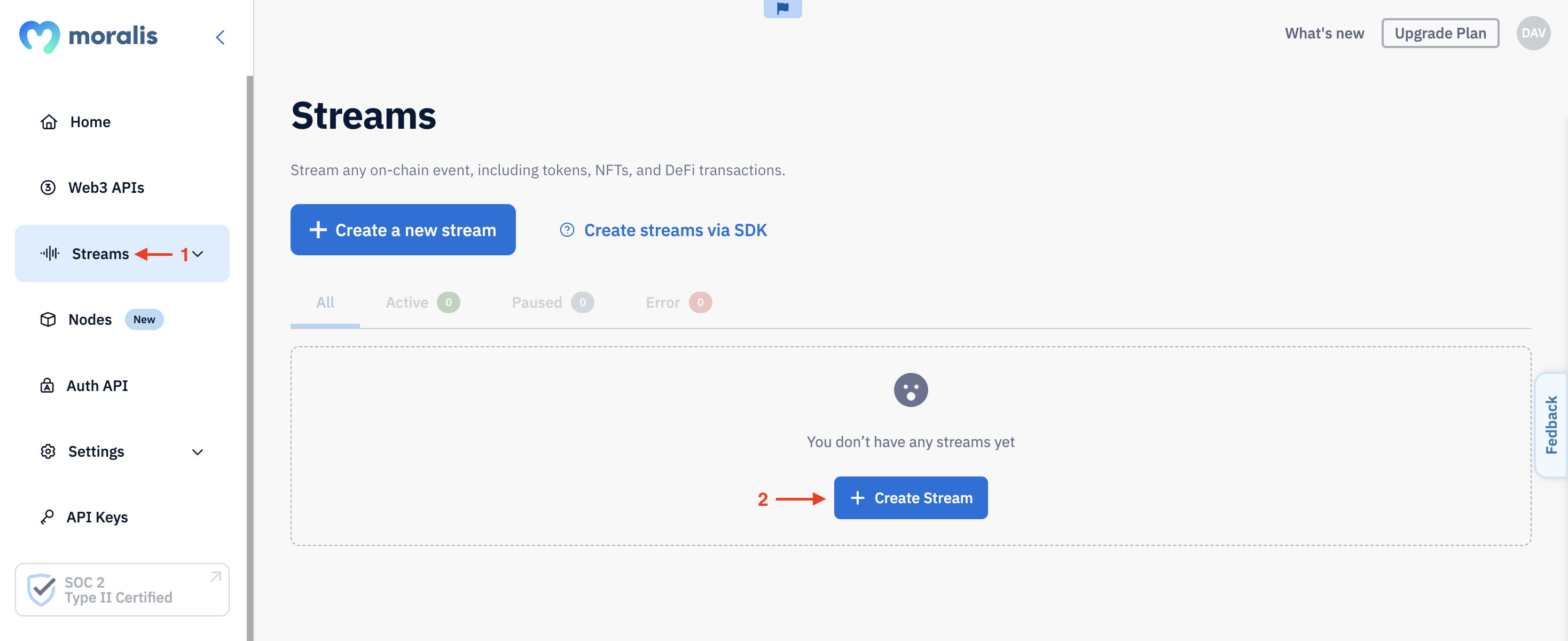
- Step 2: Give your stream a name and specify the type of events you wish to monitor. For this tutorial, we’ll select “Contract Events.” Here, you can also decide to exclude potential spam events to filter out unwanted activity:
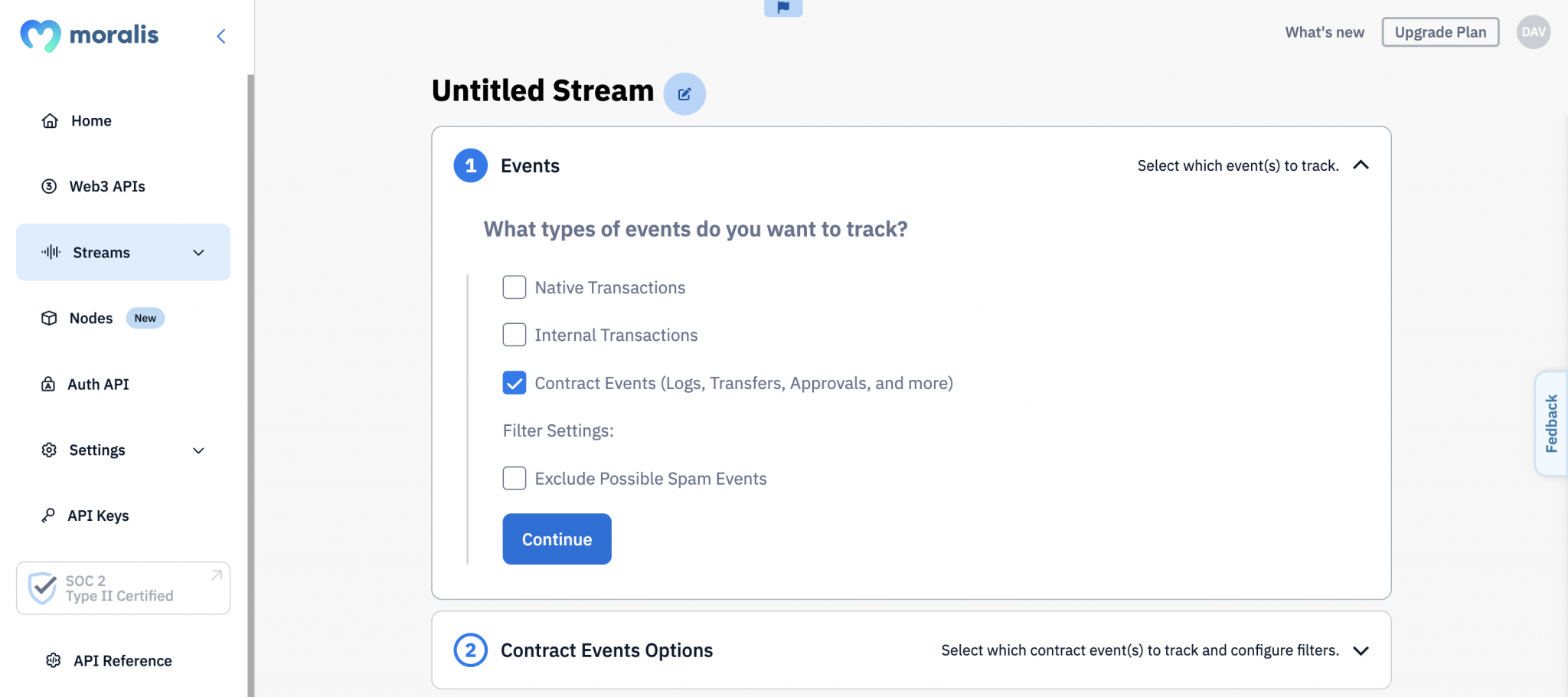
- Step 3: Choose the events you want to track. In our case, we’ll go for “Common Events” and then “Token Transfers”:
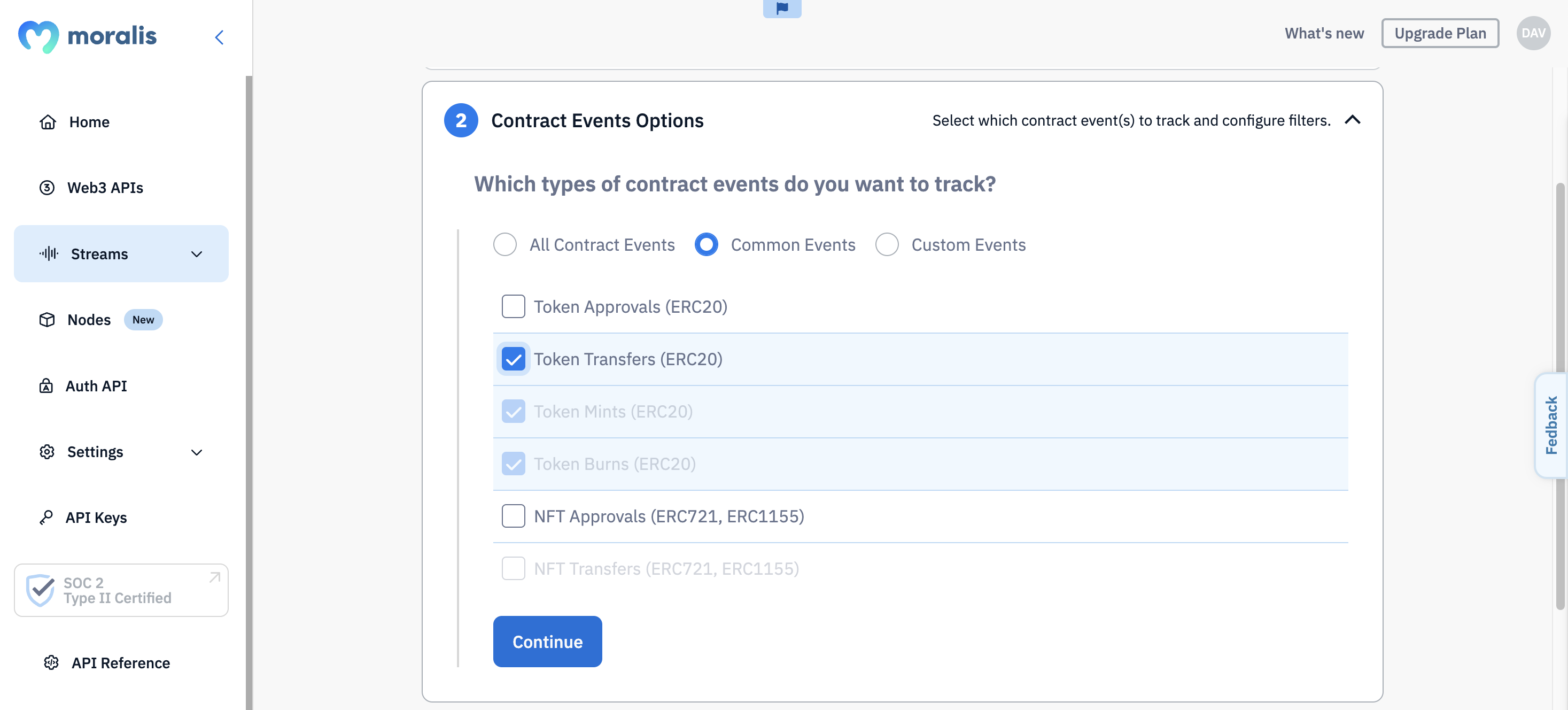
- Step 4: Give your stream a tag and select additional information you want to add to your data payloads:
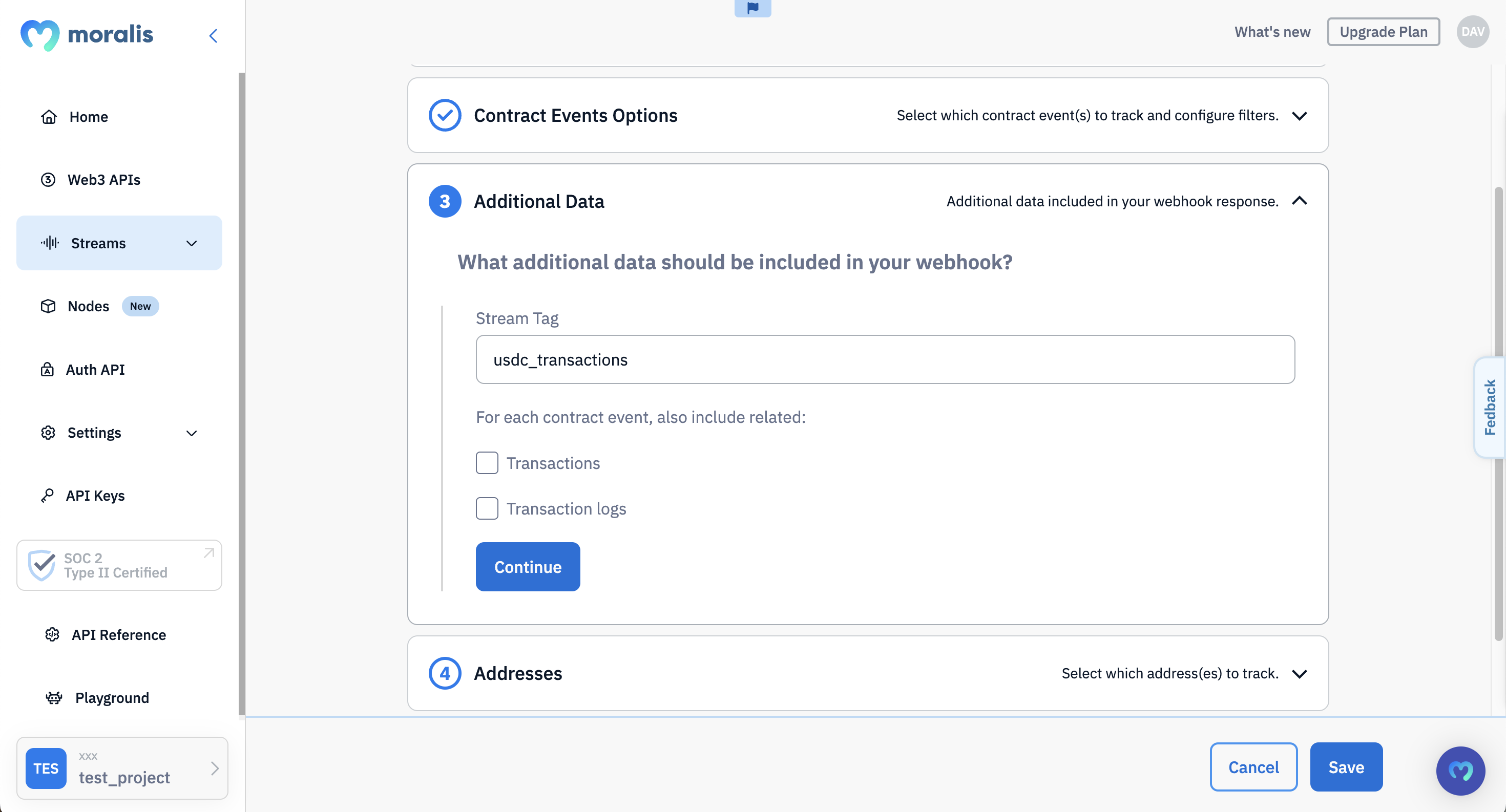
- Step 5: Add the contract address(es) you want to monitor. For this tutorial, we’ll simply add the USDC address.
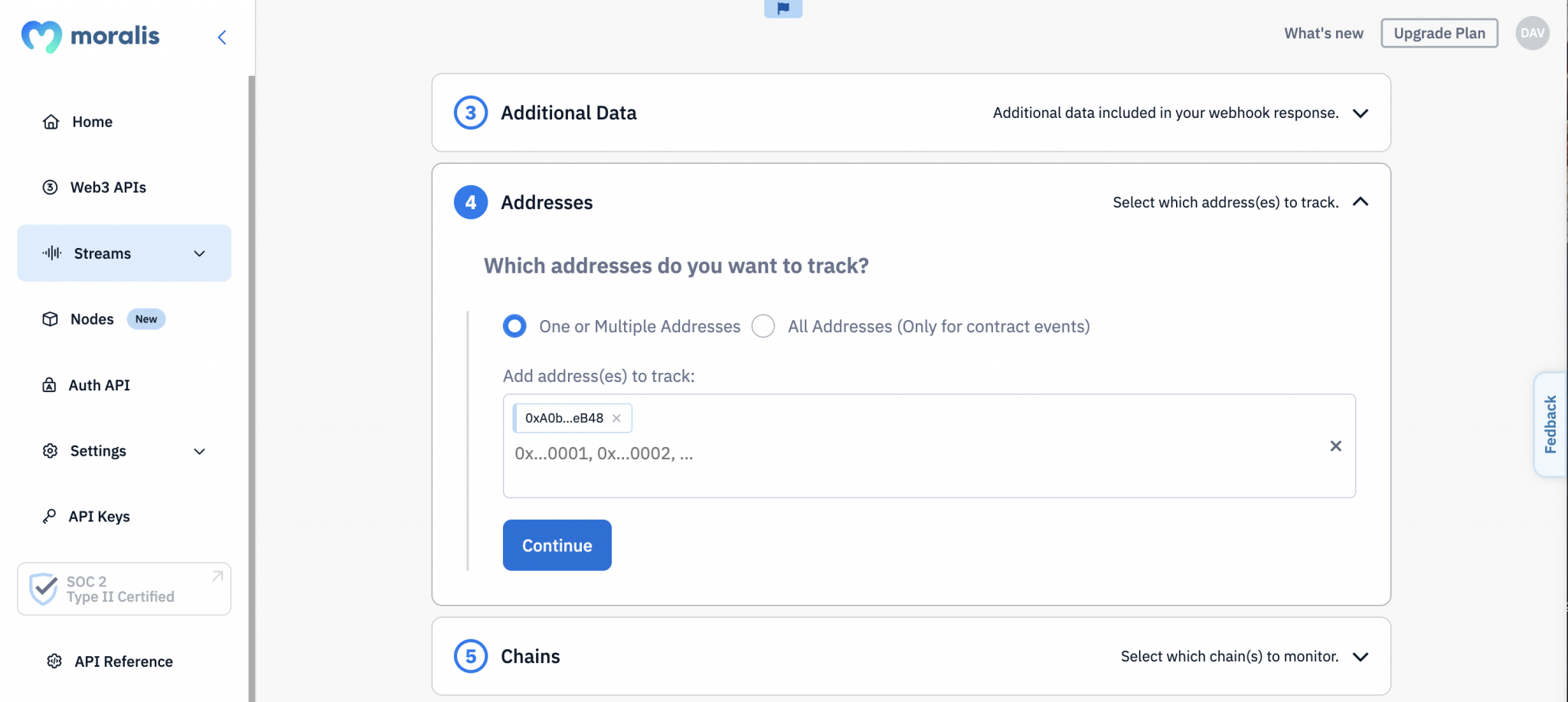
- Step 6: Select the chain(s) you want to track. We’ll go for Ethereum, but you can specify as many networks as you’d like:
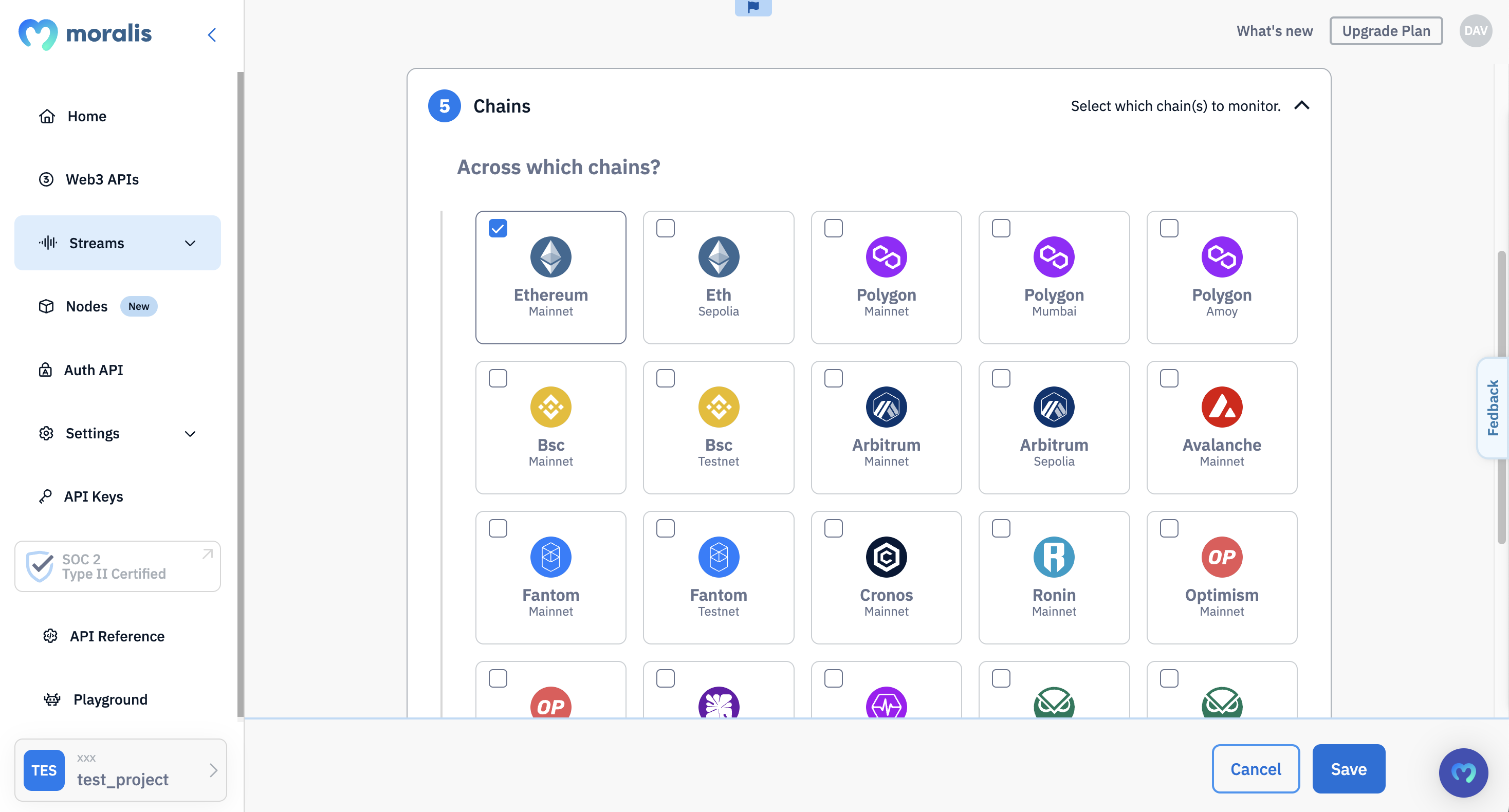
- Step 7: Test your stream:
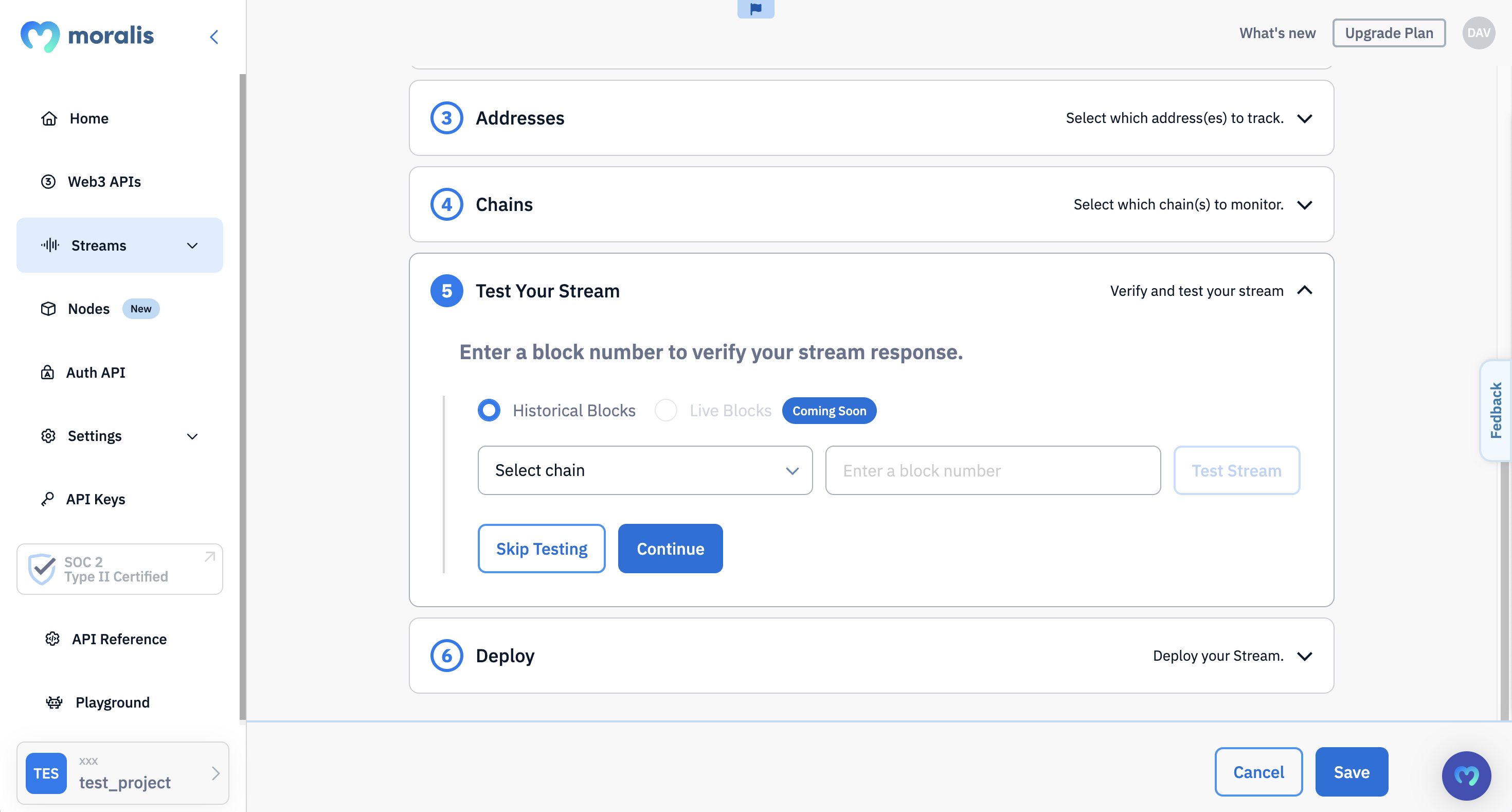
- Step 8: Add your webhook URL, click “Continue,” and hit the “Save & Deploy” button:

In return, you’ll now receive real-time updates as soon as a USDC transfer occurs. Here’s an example of what the responses will look like:
//...
{
transactionHash: '0x3858c26ad521b041e0550c90bfd39149131eca657de0a48361b5b7f3f0a6e23f',
logIndex: '395',
contract: '0xa0b86991c6218b36c1d19d4a2e9eb0ce3606eb48',
triggered_by: [Array],
from: '0x3fc91a3afd70395cd496c647d5a6cc9d4b2b7fad',
to: '0x88e6a0c2ddd26feeb64f039a2c41296fcb3f5640',
value: '2361961560',
tokenName: 'USD Coin',
tokenSymbol: 'USDC',
tokenDecimals: '6',
logo: 'https://logo.moralis.io/0x1_0xa0b86991c6218b36c1d19d4a2e9eb0ce3606eb48_e6ec22e3ef954a7f9eda04f294938f4d',
thumbnail: 'https://logo.moralis.io/0x1_0xa0b86991c6218b36c1d19d4a2e9eb0ce3606eb48_e6ec22e3ef954a7f9eda04f294938f4d',
possibleSpam: false,
verifiedCollection: true,
valueWithDecimals: '2361.96156'
},
//...
That’s it; you now know how to seamlessly get real-time blockchain data with Moralis Streams. From here, you can follow the steps above to set up Web3 data pipelines for other custom events!
If you’re looking for a more in-depth walkthrough of the steps above, along with an example of how you can leverage your streams in a real-world scenario, check out the Moralis YouTube video below:
Moralis Streams Use Cases
At this stage, we’ve thoroughly explored the Streams API and its usage. Now, let’s delve into some prominent use cases for streaming real-time blockchain data:
- Tracking Wallet Addresses: Monitor millions of addresses across all major chains through a single data stream, enabling powerful features such as token gating.
- Web3 Alerts: Enhance user engagement by sending real-time notifications based on wallet holdings. Keep users informed about token transfers, price changes, and more with ease.
- Populating Databases: Track, index, and store real-time events in your database to maintain a comprehensive and accurate record of blockchain activities for any contract, address, or wallet.

These are three common use cases for the Streams API. However, due to the flexibility of this industry-leading tool, it can be customized for an even broader array of applications.
Beyond the Best QuickAlerts Alternative – Exploring Moralis Further
Moralis is the industry’s leading Web3 data provider. In our suite of development tools, you’ll find top-tier RPC nodes and many more interfaces accompanying the Streams API. Some prominent examples include the Wallet API, NFT API, Token API, etc. As such, it doesn’t matter if you’re building a cryptocurrency wallet, decentralized exchange (DEX), or any other Web3 platform; we have your data needs taken care of!

But why should you use Moralis as your Web3 data provider?
- Comprehensive Data with One Call: Moralis delivers the industry’s most thorough API responses, providing all the data you need in a single request. This efficiency allows you to build dapps faster and more effectively.
- Cross-Chain Compatibility: Moralis is fully cross-chain compatible, offering complete feature parity across all major chains, such as Ethereum, Polygon, BSC, and more. This ensures a streamlined developer experience, as you can rely on a single data provider for multiple networks.
- Top-Notch Security: Moralis is SOC 2 Type 2 compliant, ensuring enterprise-grade data security for your dapps.
With this overview of Moralis, let’s delve deeper into our suite of Web3 APIs!
Moralis’ Web3 APIs
In Moralis’ suite of Web3 APIs, you’ll find over ten use case-specific interfaces. Here are three prominent examples you’ll likely find useful when building dapps:
- Wallet API: The Wallet API boasts an impressive array of features, unparalleled scalability, and exceptional flexibility, making it the definitive solution for wallet builders. With one line of code, you can access any wallet’s token balances, history, net worth, DeFi positions, and more.
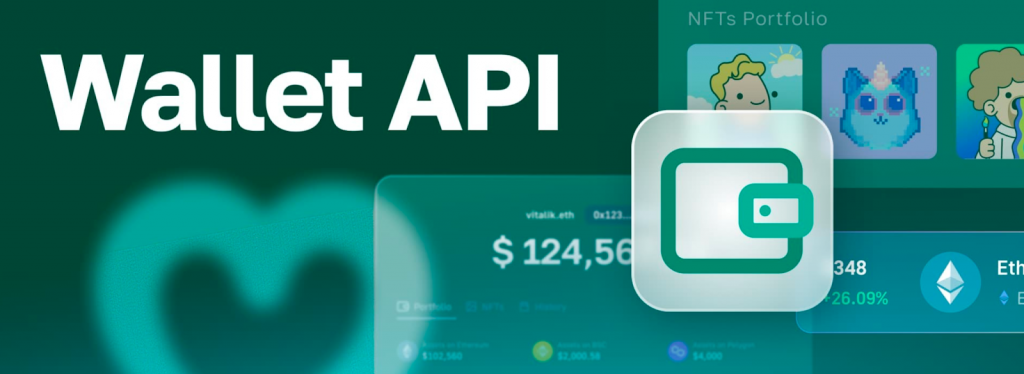
- NFT API: The NFT API is the industry’s #1 interface for NFT data, supporting over three million collections across all major chains. Use this premier API to get NFT balances, metadata, prices, and more without breaking a sweat.

- Token API: Moralis’ Token API is the ultimate API for ERC-20 data, supporting every single token across all the biggest chains. This includes everything from stablecoins like USDC to meme coins like Shiba Inu. With this interface, you can effortlessly get token balances, prices, metadata, and more with single API calls.
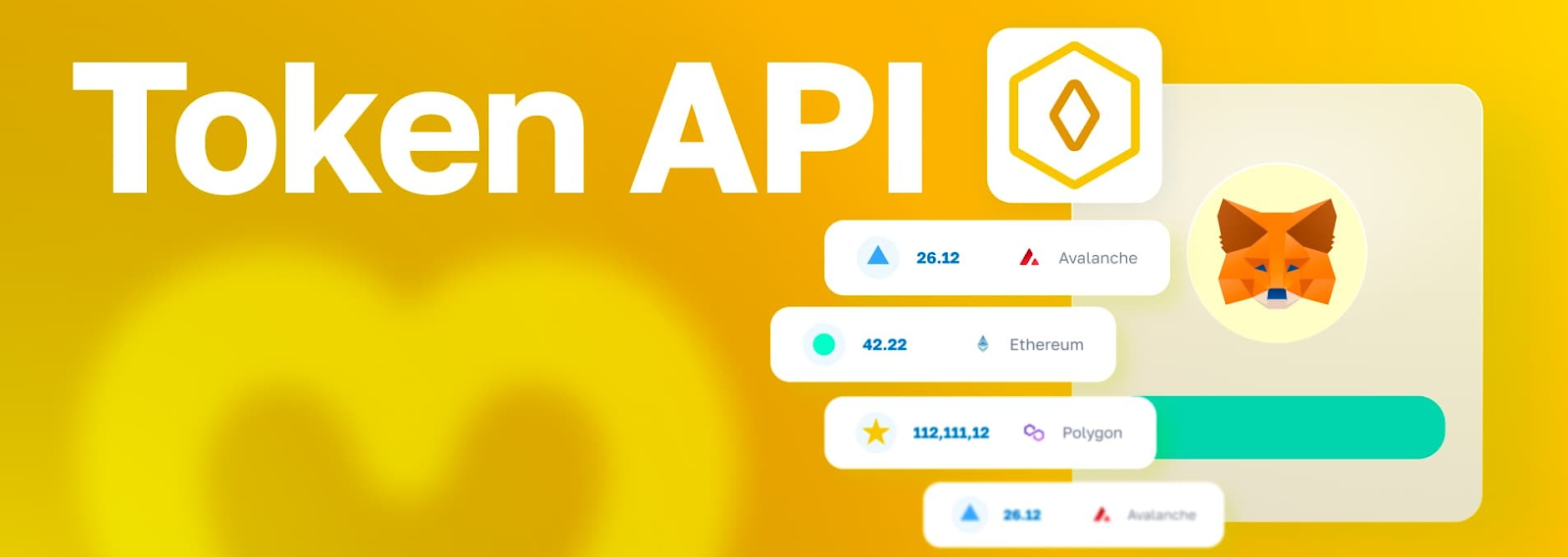
That covers three prominent interfaces. If you’d like to explore them all, please visit our Web3 API page, where you’ll find the rest!
Moralis’ RPC Nodes
In addition to our industry-leading Web3 APIs, Moralis offers a top-tier node service designed for seamless performance. Our intuitive user interface allows you to set up nodes for over 35 chains, including Ethereum, Polygon, BSC, and many more, with just a few clicks!
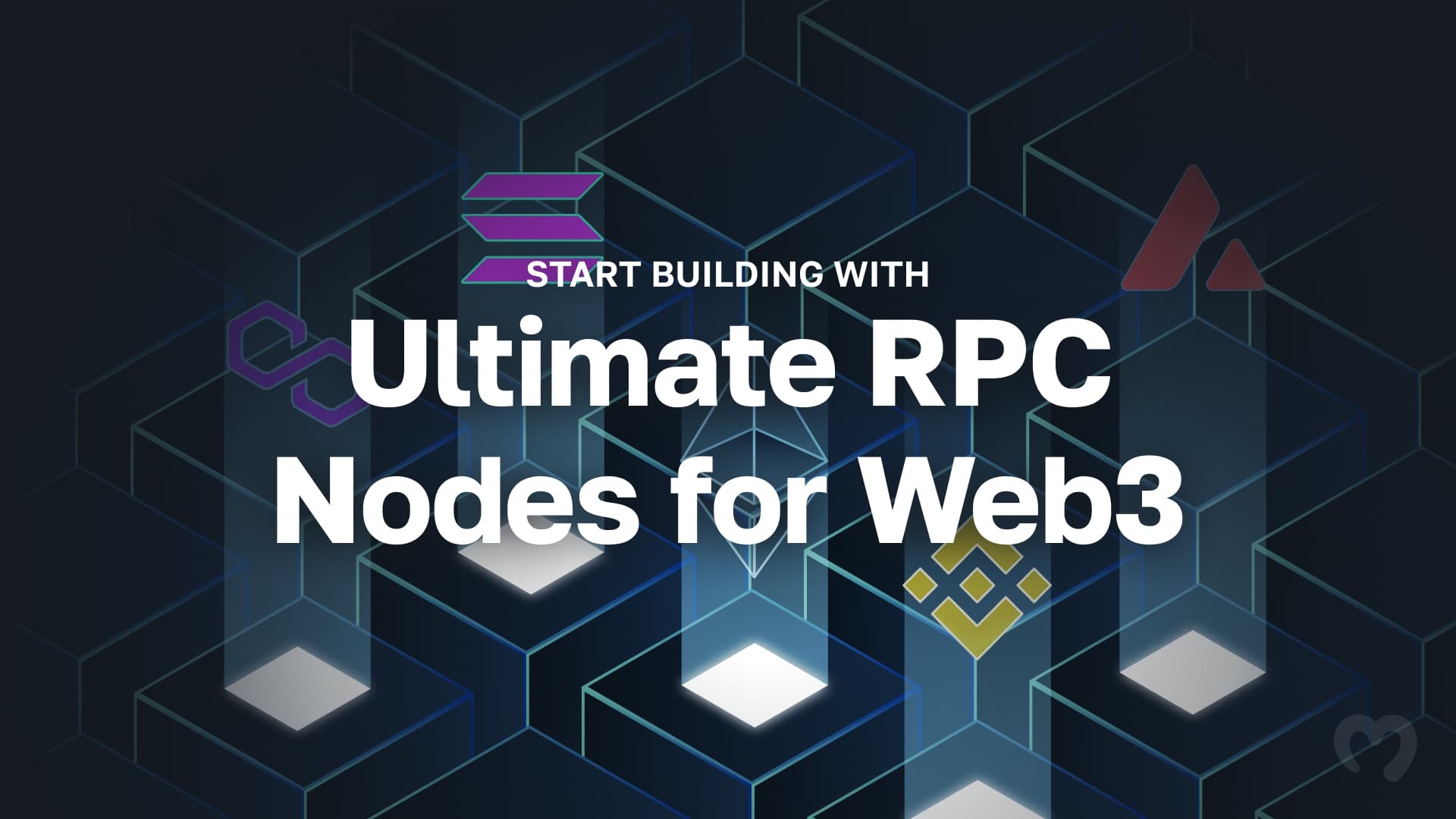
Why choose Moralis nodes?
- Speed: Our nodes boast response times as fast as 70 ms, ensuring you can access the data you need without delays.
- Security: With a SOC 2 Type 2 certificate, we prioritize your data’s safety, guaranteeing top-notch security across all our products.
- Reliability: With an impressive 99.9% uptime, Moralis nodes are built to meet the highest reliability standards.
Discover more about this premier service by visiting our nodes page!
Summary: QuickAlerts Alternative – Exploring the Best Way to Stream On-Chain Data
If you’re searching for the best QuickAlerts alternative, you’re in the right place. In this guide, we introduce Moralis’ Streams API—the blockchain industry’s top real-time data solution!
So, why is Moralis the best QuickAlerts alternative?
To answer this, we have provided a chart highlighting the advantages of using Moralis Streams over QuickAlerts:
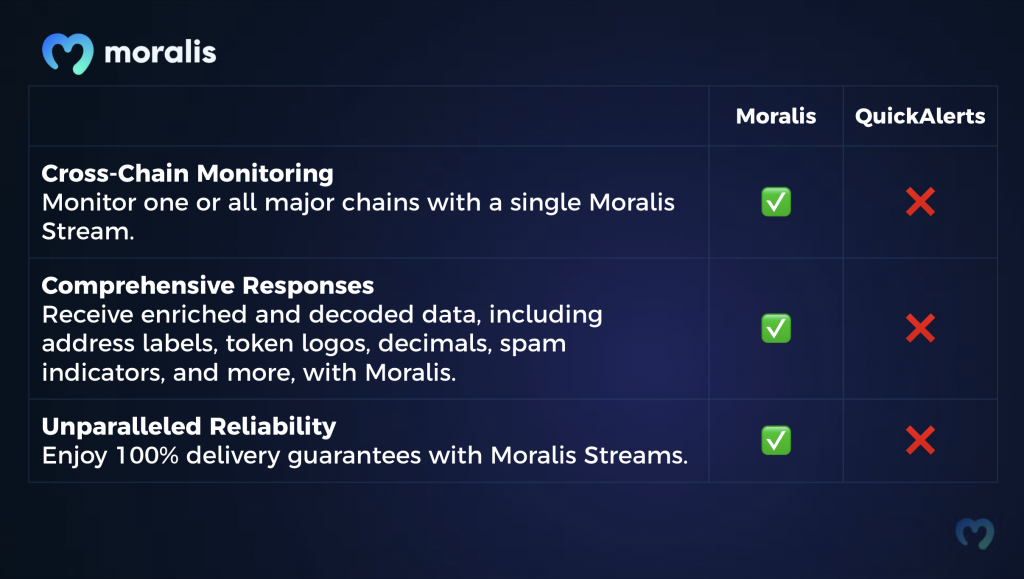
In summary, Moralis offers a more robust service compared to QuickAlerts, excelling in cross-chain compatibility, response comprehensiveness, and reliability!
If you enjoyed this article and want to explore similar content, check out the following guides:
Ready to start using the industry’s leading real-time data solution? Sign up with Moralis today. You can create your account for free and gain immediate access to all our premier development tools!







